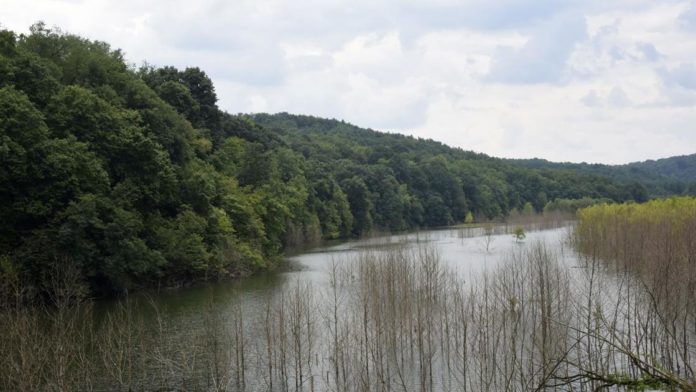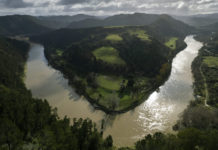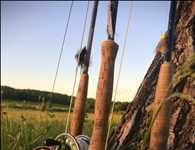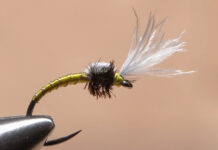Editor’s note: This is a weekly series focusing on the importance of buying local.
Many fishermen will say one of the biggest enjoyments they get is being away from the rigors and stress of everyday life and just relaxing by throwing a line in the water.
Fishing can be more intense, however, depending on one’s motivation.
For the most part, local angers utilizing the region’s waterways like the time to enjoy themselves with friends and family.
“It’s a lot of stress relief for me,” said Anthony Harmon, a Washington County resident and native Ohioan. “I deal with people every day in stressful situations. Being able to throw in the water, listen to the water and the fish is relaxing to me.
“It gives me and my partner the opportunity in Ten Mile Creek to canoe and fish. Once you get hold of a fish, it’s just a great experience.”
Harmon learned about fishing from his father and grandfather.
He recently fished in Ohio and enjoys Ten Mile because it’s quiet, has a park and is nice to explore.
“I’m still trying to figure out the hot spots,” Harmon said. “I have been interested in fishing a long time. I did a lot of 4-H projects related to fishing and watch shows to learn more techniques and skills.”
Some of the local places to fish in addition to Ten Mile is Dutch Fork Lake and Cross Creek Lake.
Dutch Fork Lake is located in Washington County and is a 91-acre impoundment owned by the Commonwealth of Pennsylvania and managed by the Fish and Boat Commission for public fishing and boating.
Dutch Fork Lake contains a good population of warm and cool water species of fish. Commonwealth Inland Regulations apply for all species. Shore fishing is permitted. Boating is limited to boats powered by electric motors and those without motors.
Boats without motors may be moored at the lake in accordance with commission property regulations. To be used at the lake, boats must be registered or have a valid launch permit, which are issued by the commission or PA Dept. of Conservation and Natural Resources.
Cross Creek Lake is a productive 244-acre impoundment located in western Washington County near Avella. It is in the Washington County Parks system and receives heavy angler use. Conservation Lake regulations were used to manage Cross Creek Lake since it was opened for fishing in 1985 through 1998. Starting in 2000 Big Bass Regulations and Panfish Enhancement Regulations for sunfish and crappie were applied at the impoundment.
Twenty saugeyes were collected during the 2003 trap net survey with 85% greater than 15 inches or the legal size. The longest saugeye collected was 25.4 inches long. The heaviest saugeye collected weighed 5.3 pounds.
Walleye were stocked in the lake from 1983 to 1996. Five fish sampling surveys from 1986 to 1994 at Cross Creek Lake failed to document what was considered an adequate number of walleyes to produce good fishing.
Ten Mile Creek is a low-gradient stream in Southwestern Pennsylvania that is home to a good number of fish. The stream rises near the borough of Green Hills. It slowly flows for more than 30 miles through fields, forests, farms, yards, parks, industrial job sites and old coal mines before meeting the South Fork of Ten Mile in the town of Clarksville. There the stream doubles in size and flows passed a few more towns and marinas before finally emptying into the Monongahela River.
An upper section of Ten Mile Creek near the town of Amity is stocked with trout by the state’s Fish Commission and managed as a “stocked trout stream.” Other areas are stocked with trout by private organizations. The introduced trout join a host of native fish including bass, drum and musky.
According to statista.com, fishing is one of the most popular outdoor recreational activities in the United States. In 2019, more than 50 million Americans visited the nation’s waterways to engage in freshwater, saltwater and fly-fishing activities – marking the highest fishing participation rate in more than a decade.
In line with global participation trends, the number of hobbyists casting their rods in the United States is forecast to increase in the future – a development that can contribute to the health and well-being of millions of Americans of all ages but also pose a challenge to regional ecosystems.
Those interested in joining the Be Local Network can contact Chris Slota at 724-225-1326 or by email at chris@belocal.net. Discount cards are available at the Observer-Reporter and Almanac office, 122 S. Main St., Washington.
Credit: Source link































